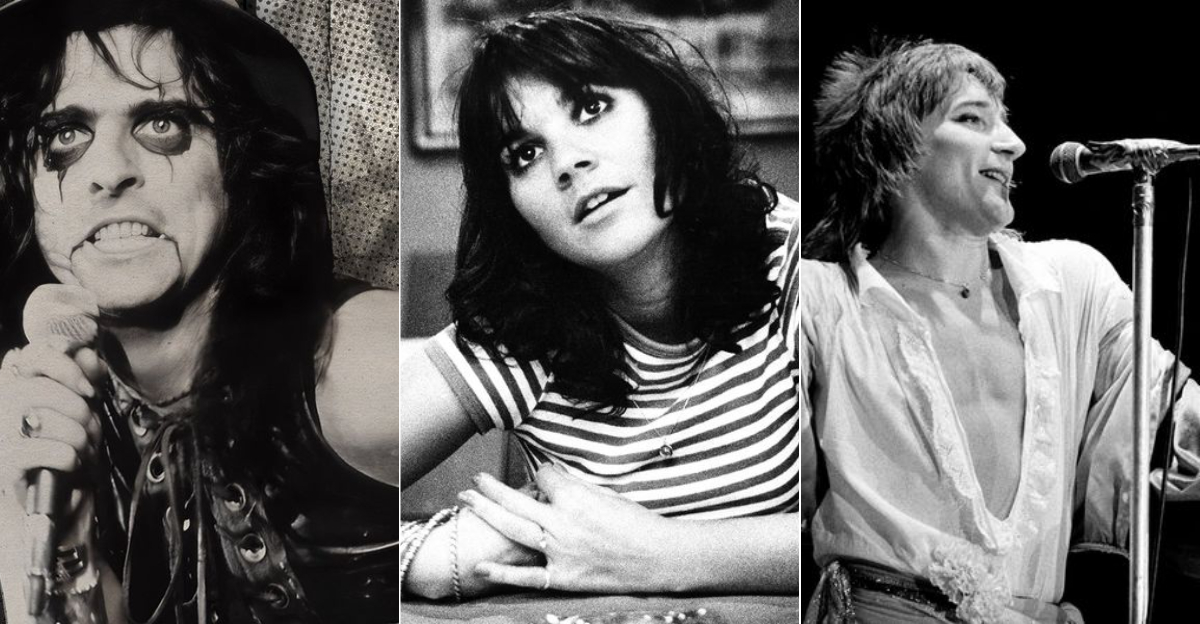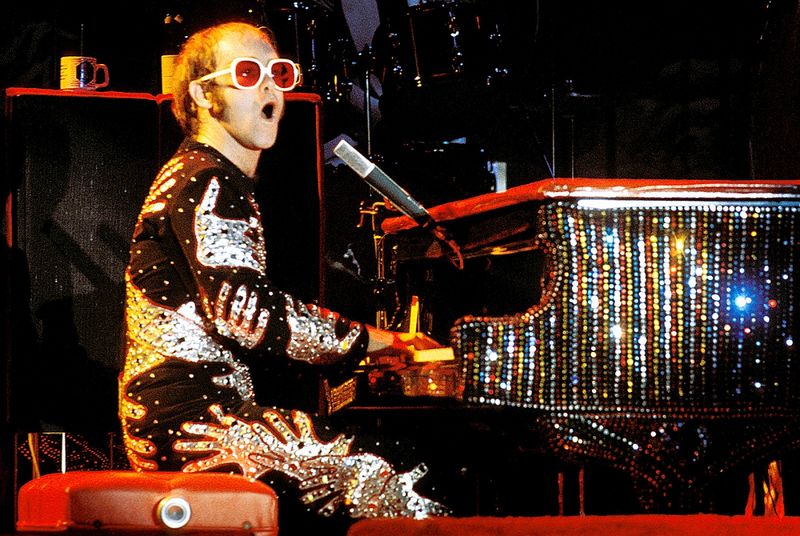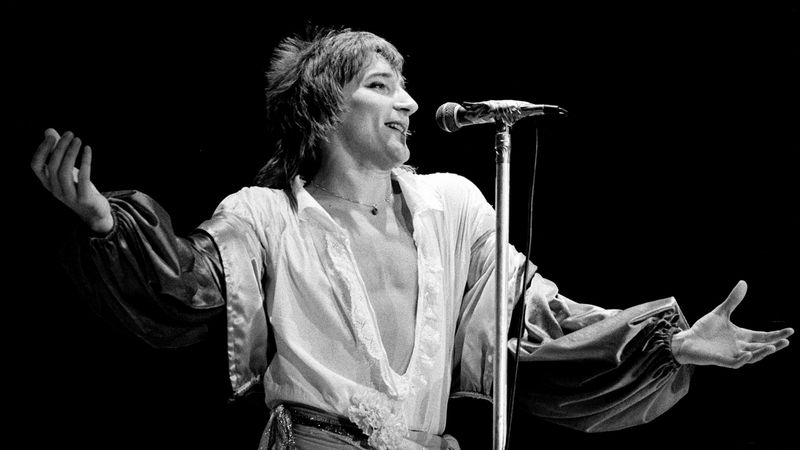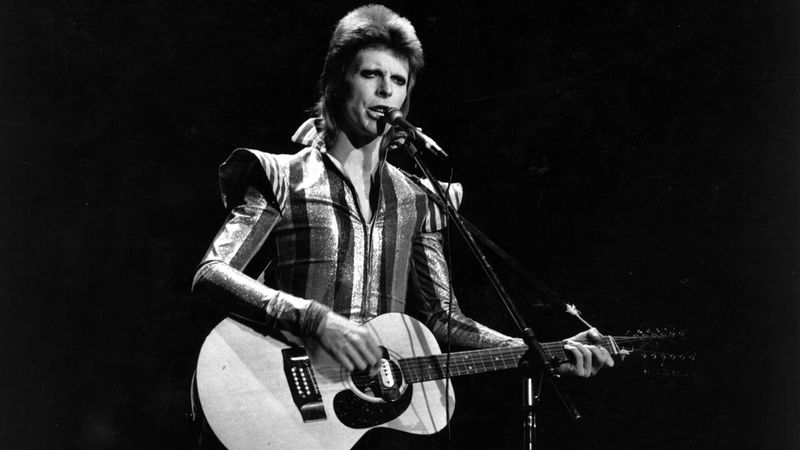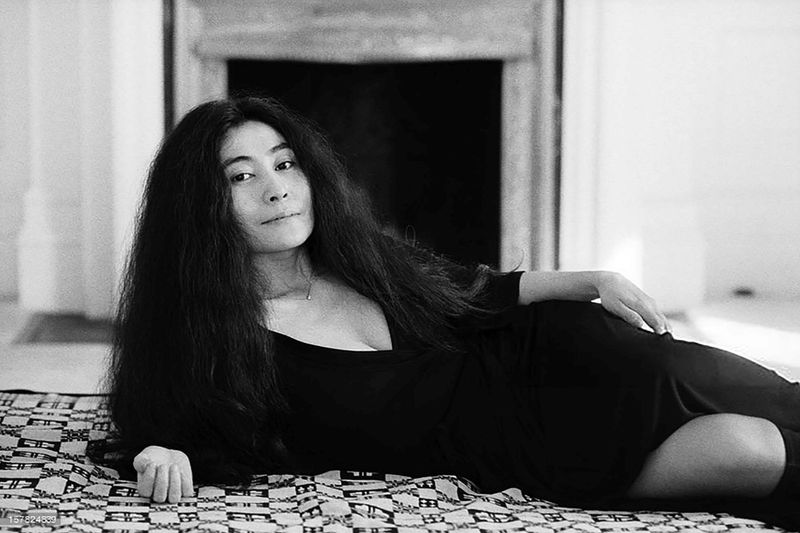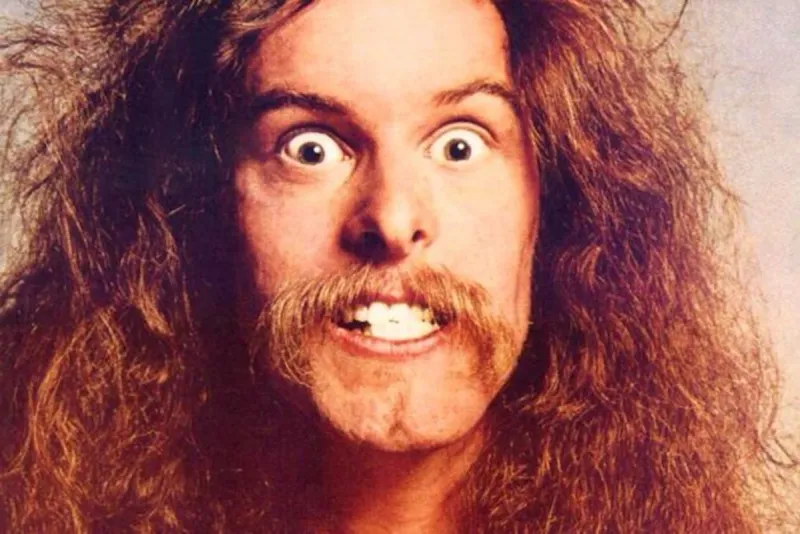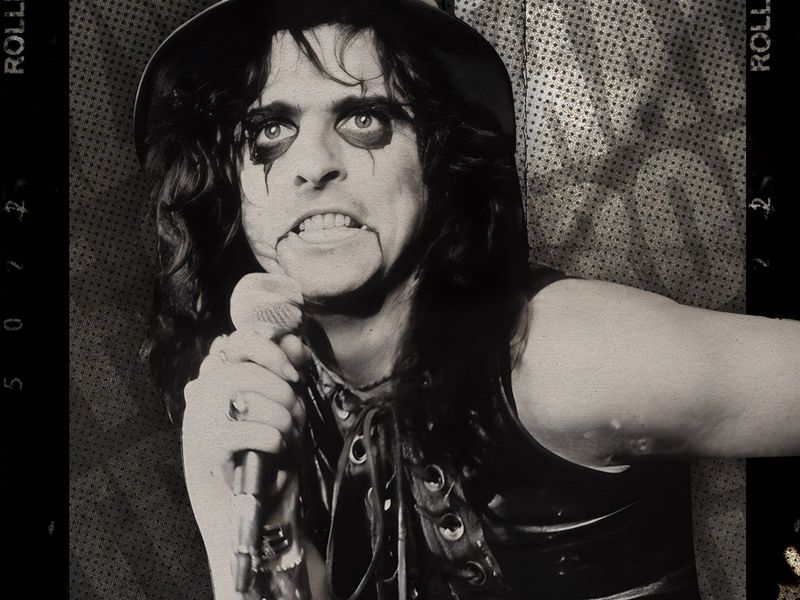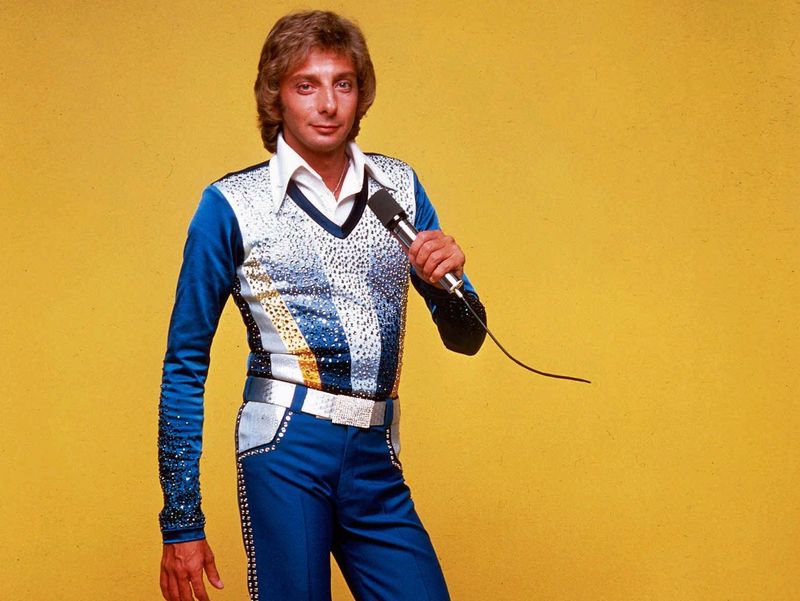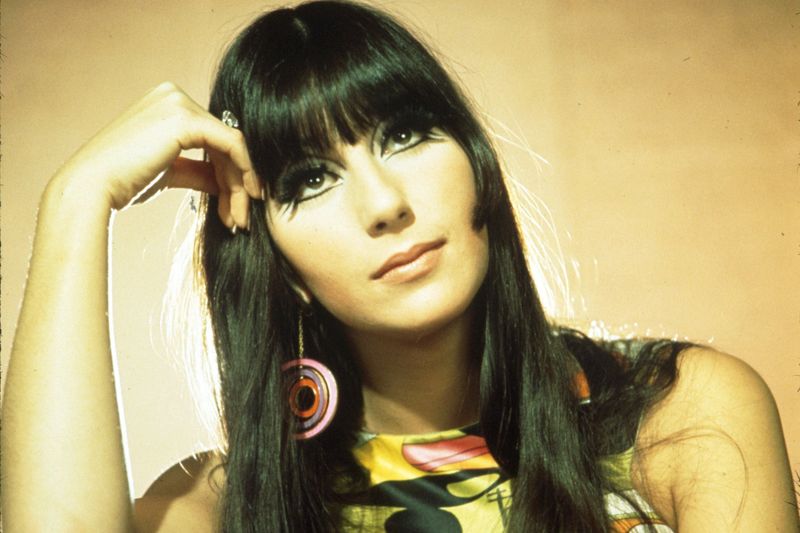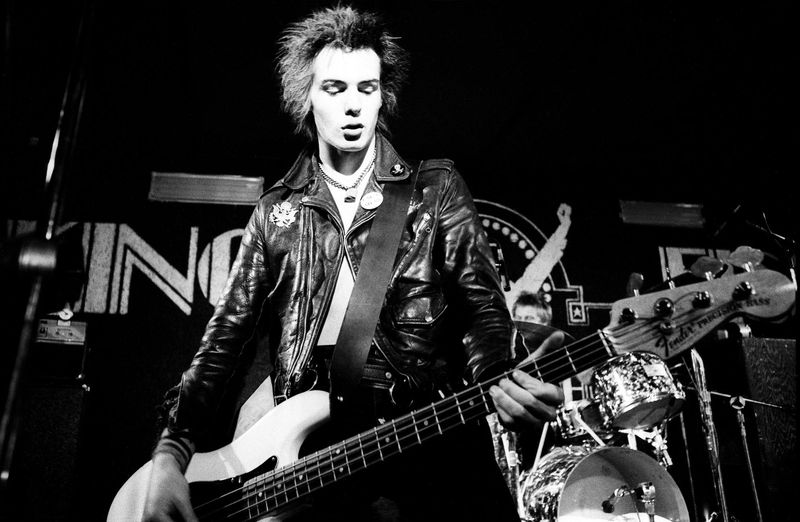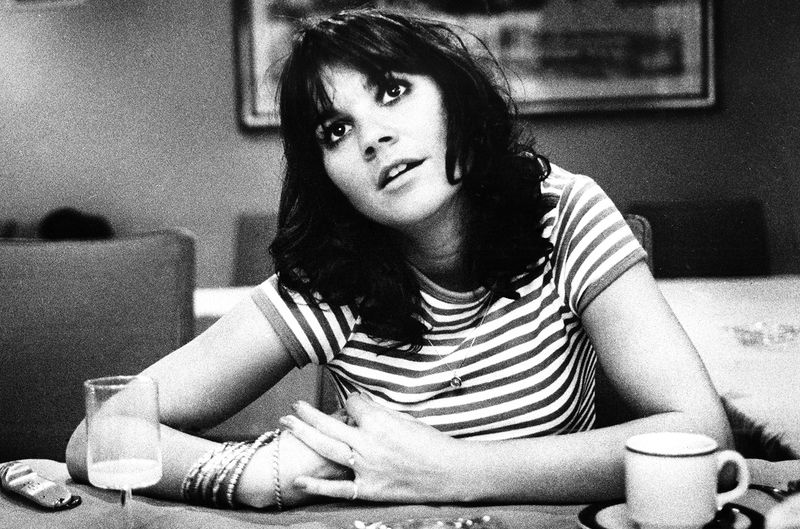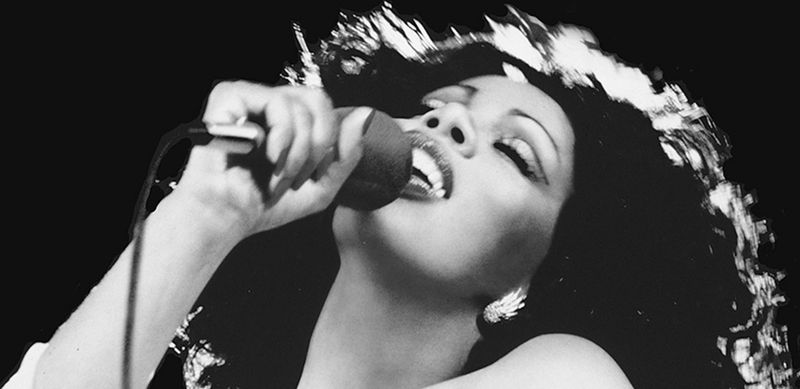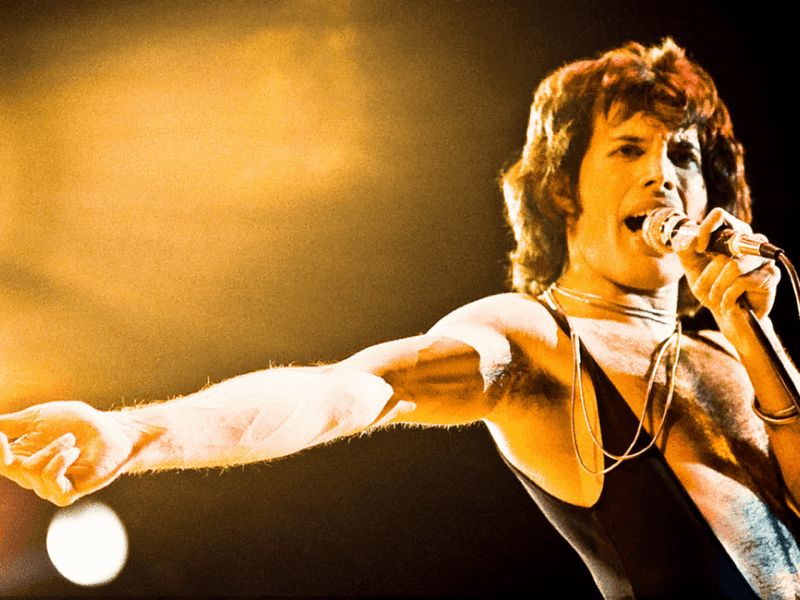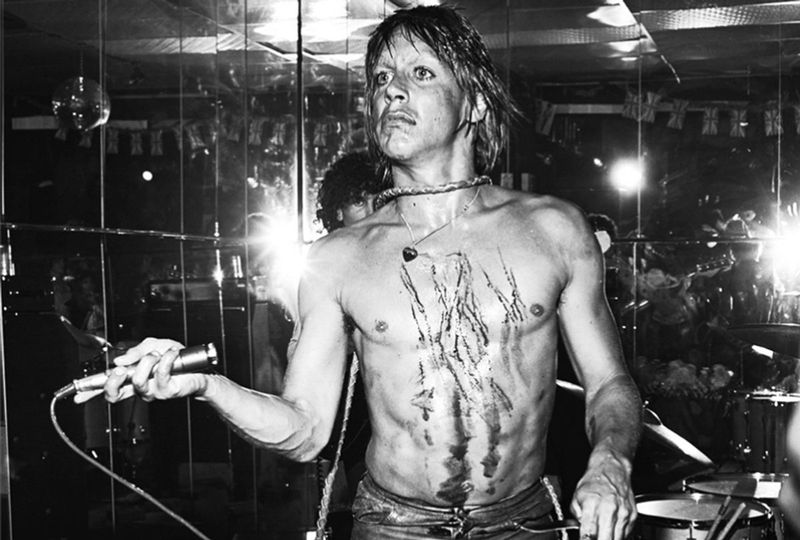The 1970s was a vibrant decade for music, filled with innovation and experimentation. However, not every melody struck a chord with everyone. Some musicians, despite their fame, managed to irritate as much as they entertained.
From flamboyant personalities to controversial artistic choices, these artists left both fans and critics divided. Here’s a look at 13 musicians from the 1970s who were as notorious for their quirks as they were for their music.
1. Elton John
Elton John, the Rocket Man himself, dazzled audiences with his vibrant performances and flamboyant outfits. Yet, his over-the-top style sometimes overshadowed his musical genius, leaving some fans exasperated.
Despite his undeniable talent, Elton’s penchant for flamboyance was not to everyone’s taste. Critics often debated if his personality eclipsed his artistry.
Whether it was his gaudy glasses or extravagant costumes, Elton’s unique persona divided opinions. Those into subtlety found his showmanship overwhelming, while his admirers cherished every bold move.
2. Rod Stewart
Rod Stewart, with his raspy voice and signature shaggy hair, was a musical icon of the 1970s. Yet, his swaggering style and cheeky lyrics didn’t please everyone.
His hits, laden with suggestive themes, often sparked debates about his intentions, leaving some listeners irritated, while others adored his bold approach.
Critics sometimes found his flamboyance and bravado too much to handle, marking him as a love-him-or-hate-him figure.
3. David Bowie
David Bowie, the chameleon of music, captivated many with his ever-changing personas. His Ziggy Stardust era, though iconic, was polarizing.
His experimental approach to music and fashion was groundbreaking, yet it often left traditionalists baffled.
While fans applauded his innovation, critics found his constant reinvention disorienting, labeling him both a genius and a source of irritation.
4. Yoko Ono
Yoko Ono, renowned for her avant-garde art and music, was a controversial figure in the 1970s. Her unique vocal style and experimental compositions often left audiences perplexed.
As John Lennon’s partner, her influence on his music sparked debates, earning her both ardent supporters and vocal critics.
To some, her groundbreaking work was inspiring, while others found her unorthodox approach to music notably irritating.
5. Ted Nugent
Ted Nugent, known for his electrifying guitar solos, was a larger-than-life presence in the 1970s rock scene. His outspoken nature and wild antics often polarized audiences.
While his talent on the guitar was undeniable, his off-stage persona and controversial statements landed him in hot water.
Some listeners admired his raw energy, while others found his bombastic personality too much to handle.
6. Alice Cooper
Alice Cooper, the master of shock rock, intrigued and horrified audiences in equal measure. His theatrical performances were spectacles that often bordered on the macabre.
His love for shock value, featuring guillotines and fake blood, was a novel concept but not for the faint-hearted.
While many fans appreciated his boldness, critics found his approach unnecessarily grotesque and irritating.
7. Barry Manilow
Barry Manilow, with his easy-listening hits, was a staple of the 1970s music scene. Yet, his sentimental style often drew mixed reactions.
His music, labeled as overly saccharine by some, was adored by fans but criticized for its lack of edge.
While his fans cherished his soothing melodies, others found his music too predictable, branding him as irritatingly safe.
8. Cher
Cher, a diva with a flair for the dramatic, was a defining figure of the 1970s. Her daring fashion choices and powerful voice were captivating yet divisive.
Her hits, often marked by bold themes, appealed to many but left some puzzled by her extravagant image.
While fans admired her confidence, others found her style too flashy and overwhelming.
9. Sid Vicious
Sid Vicious, the notorious bassist of the Sex Pistols, epitomized punk rock’s rebellious spirit. His chaotic lifestyle often overshadowed his musical contributions.
His aggressive antics and raw performances were loved by punk enthusiasts but considered irritatingly unruly by many.
While his image left a lasting impact, his approach to music was a source of contention among critics.
10. Linda Ronstadt
Linda Ronstadt, with her versatile voice, dominated the music charts in the 1970s. Despite her success, her crossover appeal was often met with skepticism.
Her genre-hopping, from rock to country, left some fans confused, questioning her musical identity.
While her ability to adapt was praised, others found her lack of a fixed style frustratingly inconsistent.
11. Donna Summer
Donna Summer, the Queen of Disco, ruled the dance floors of the 1970s. Her sultry voice and pulsating beats were infectious yet divisive.
While her music was a disco staple, critics often dismissed it as repetitive and shallow.
Fans adored her charm, but her disco dominance left some yearning for more variety.
12. Freddie Mercury
Freddie Mercury, the legendary frontman of Queen, was celebrated for his unmatched vocal prowess. Yet, his flamboyant stage presence wasn’t for everyone.
His theatrical performances, while enthralling, were sometimes seen as excessive and grandiose.
Fans idolized his charisma, but his over-the-top persona could be polarizing.
13. Iggy Pop
Iggy Pop, the Godfather of Punk, was a force to be reckoned with in the 1970s. His raw energy and unconventional antics were both admired and criticized.
His on-stage behavior, often near anarchic, was a hallmark of his performances but not appreciated by all.
While punk fans lauded his authenticity, others found his approach too chaotic and unsettling.
